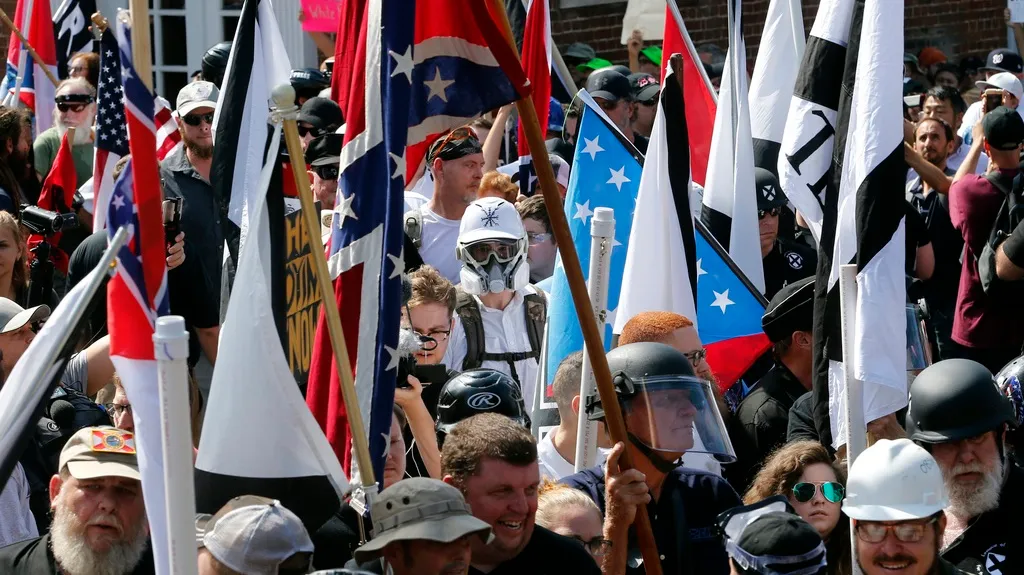January 31, 2011
Anti-Gay Rant at Funeral for Slain Ugandan Activist
Kilian Melloy READ TIME: 5 MIN.
In a Jan. 29 New York Times article, correspondent Jeffrey Gettleman describes a clandestine meeting with Ugandan LGBT equality activist David Kato. The setting: an out-of-the-way spot near a nightclub. The time: just over a year ago, when a bill introduced by Ugandan lawmaker David Bahati was causing an international outcry because it steepened punishments against gays, including a prescription for the death penalty, and made failure by heterosexuals to report gay relationships a jailable offense.
"I'm really sorry about this," Gettleman recalls Kato telling him as the two met under cover of the dark of night. "This is Uganda, after all."
Ad Gettleman tells it, Kato outlined his sense of purpose as a rare voice of acceptance in a nation seized by virulent anti-gay sentiment. "We are few people who are out here," Kato told the journalist. "Me, I'm a professional teacher, I went to nice schools. My role is to fight and liberate."
Gettleman's story cites Ugandans who claimed that prior to a 2009 visit from American evangelicals who made a number of astonishing--and medically unsupported--claims about gays, there was little in the way of violence (either physical or verbal) directed at GLBTs. But after three evangelicals told Ugandan crowds that gays "recruit" teenaged boys into a "lifestyle" that is "chosen" and can be "cured," a wave of homophobia quickly swelled. A large part of the reason for the sudden and furious tide of hate, Gettleman wrote, was that among the American evangelists' wild claims was a message that gays were intent on destroying family life.
"They didn't know that when you speak about destroying the family to Africans, the response is a genocide," Rev. Kapya Kaoma told Gettleman. "The moment you speak about the family, you speak about the tribe, you speak about the future. Africans will fight to the death. When you speak like that, you invite the wrath."
And the wrath was quick to follow. Bahati's "death to gays" bill was one early manifestation; the headline "Hang Them" on the front page of a Ugandan tabloid, which published the names, photos, and home addresses of 100 people it claimed were gay or lesbian, was another. David Kato's name and photo was on the front page of that edition; Kato took the tabloid to court and won, but the paper has sworn to continue its vendetta against LGBTs.
Now Kato is dead, beaten to death with a hammer in his own home on Jan. 26. Ugandan police say that he was killed by men who broke into his house to rob him, and that his sexuality was irrelevant to the tragedy; Uganda's gays don't believe that for a moment.
But Kato's death didn't spare him a final indignity. An anti-gay Anglican cleric named Thomas Musoke disrupted Kato's funeral with a homophobic tirade that outraged mourners and led to "a scuffle," various media sources reported. Musoke was charged with conducting Ktos funeral service, but rather than allow the slain gay leader a dignified memorial, the Anglican priest launched into a harangue, telling mourners that gays needed to "repent" of their sin--the "sin," that is, of being homosexual. Some of the 200 mourners attending the funeral swept up to take the microphone away from Musoke and end his tirade; police intervened, spiriting Musoke away from the scene.
Kato's murder has galvanized the international GLBT community as nothing has since the introduction of Bahati's "death to gays" bill, with LGBT equality advocates--and international mainstream figures--calling for swift, effective action to bring the killers to justice.
Among groups and individuals condemning Kato's slaying and demanding that Ugandan police launch a serious investigation was The International Gay and Lesbian Human Rights Commission (IGLHRC), which issued a press release on Jan. 27, the day after Kato was killed.
The release stated that IGLHRC "stands in solidarity with Uganda's lesbian, gay, bisexual and transgender community in strongly condemning yesterday's killing of human rights defender David Kato. IGLHRC joins groups across the world to demand that the Ugandan government immediately denounce David's murder, thoroughly and impartially investigate this heinous crime and ensure the safety of all LGBT Ugandans."
"We are shocked and saddened by the news of the murder of David Kato," said the head of IGLHRC, Cary Alan Johnson. "David was an important leader of the Ugandan and East African LGBT movement. While the circumstances of David's death are not fully clear, I have no doubt that homophobia in its many vicious forms is responsible for his tragic death."
"David's death is a result of the hatred planted in Uganda by U.S evangelicals in 2009," Ugandan GLBT equality advocate Val Kalende declared, the AP reported. "The Ugandan government and the so-called U.S evangelicals must take responsibility for David's blood."
The Human Rights Campaign also suggested in a Jan. 27 press release that an anti-gay religious influence from the United States bore some of the blame for the virulently anti-gay social climate in Uganda. "We mourn the loss of David Kato, a member of the international LGBT community," Sharon Groves, the deputy director of HRC's Religion & Faith Program, said. "An atmosphere of extreme homophobia in Uganda has clearly contributed to a climate where LGBT people are unsafe.
"Fundamentalist ministers in the United States who have systematically exported homophobia to Uganda share responsibility for this tragedy and we call on them to stop exporting hatred masked as religion," added Groves.
One of the American evangelicals who addressed Ugandan crowds, Don Schmierer, called the murder "horrible," but denied any responsibility for Kato's death. "Naturally, I don't want anyone killed, but I don't feel I had anything to do with that," Schmierer told the New York Times. Schmeirer added that he had also received threats for having been on of the three evangelicals who spoke in Uganda on the 2009 visit.
"I spoke to help people, and I'm getting bludgeoned from one end to the other," said Schmierer.
GLBT advocacy groups and human rights activists were not the only ones calling for a swift and satisfactory response from Uganda's police. "Our thoughts and prayers are with his family, friends, and colleagues," said U.S. Secretary of State Hillary Rodham Clinton. "We urge Ugandan authorities to quickly and thoroughly investigate and prosecute those responsible for this heinous act. David Kato tirelessly devoted himself to improving the lives of others."
President Obama also condemned Kato's murder, reported Politico on Jan. 27. "At home and around the world, LGBT persons continue to be subjected to unconscionable bullying, discrimination, and hate," said Obama. "In the weeks preceding David Kato's murder in Uganda, five members of the LGBT community in Honduras were also murdered. It is essential that the Governments of Uganda and Honduras investigate these killings and hold the perpetrators accountable.
"LGBT rights are not special rights; they are human rights," noted Obama. "My Administration will continue to strongly support human rights and assistance work on behalf of LGBT persons abroad. We do this because we recognize the threat faced by leaders like David Kato, and we share their commitment to advancing freedom, fairness, and equality for all."
Bahati's proposal to put gays to death and criminalize sympathy and discretion regarding same-sex relationships remains on the table, however, and could become law soon.
Kilian Melloy serves as EDGE Media Network's Associate Arts Editor and Staff Contributor. His professional memberships include the National Lesbian & Gay Journalists Association, the Boston Online Film Critics Association, The Gay and Lesbian Entertainment Critics Association, and the Boston Theater Critics Association's Elliot Norton Awards Committee.





